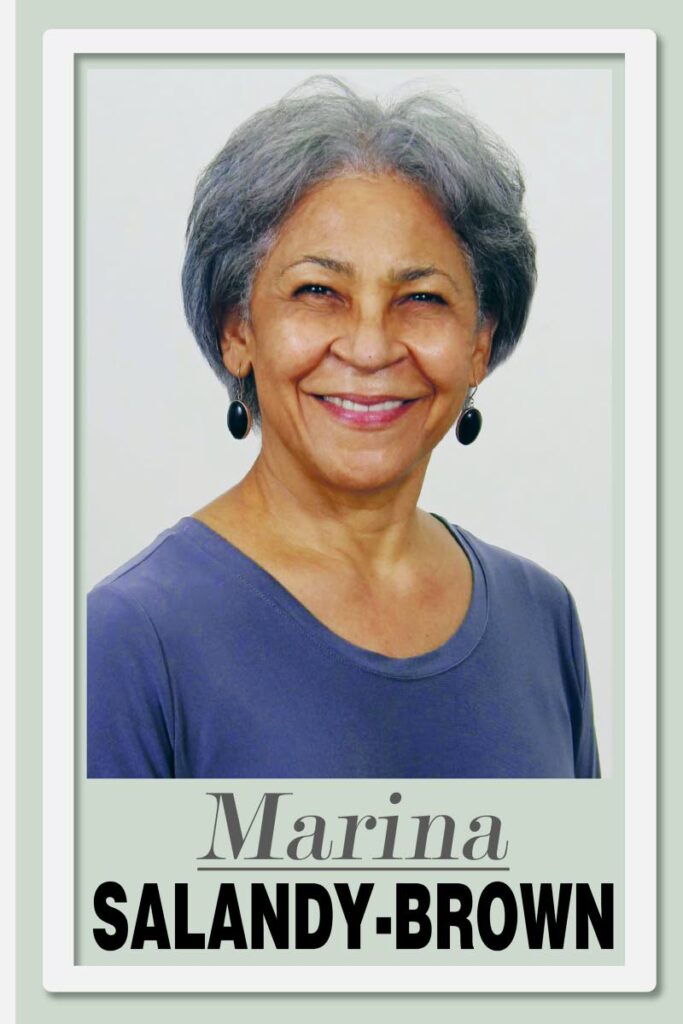Always coming home

“Always coming home” is the concluding line of a poem in Epiphaneia, the collection by Richard Georges, the TT-born poet and British Virgin Islands dual citizen who is also the Poet Laureate of BVI. Epiphaneia won the 2020 OCM Bocas Prize for Caribbean Literature, and the phrase provides the theme of this year’s Bocas Lit Fest, TT’s annual literary festival (May 1-4, at the National Library).
The question about where and what is home has been brought into sharp focus by current geo-politics that is shaking the foundations that helped us define where we belong and feel safe. Urgent questions of citizenship, who the state includes and excludes, (armed) borders, the fate of refugees, threats to national sovereignty, and redefinitions of human rights. These are issues we cannot ignore because we live in an interconnected world in which vulnerable, small Caribbean states and our diasporas are not exempt.
We are experiencing a defining moment in world history and in the May 2, 4 pm Friday session of the festival, journalist Asha Javeed will lead a current affairs discussion on the topic of how the Caribbean can deal effectively with the predicament. Taking part are Elizabeth Solomon, Caricom Assistant Secretary-General for foreign and community relations; Kellie Magnus, executive director, Caribbean Culture Fund; Richard Lynch, former deputy director of international affairs at the Ministry of National Security and EU Ambassador Peter Cavendish.
For many of us in the Caribbean who live in between places and whose bodies give testament to the fact that we once came from somewhere else, home, identity and ideas of belonging never fully recede. It is a constant discussion with ourselves and a very present theme in Caribbean literature. That’s not surprising since, quite unconsciously, we deal with the discomfort on a daily basis, especially when we live away from where we grew up considering as home, and where our differences force us to question ourselves.
Election time is guaranteed to underline what divides people, to inject fear and mistrust in the voting public. Yet our tribal politics in TT is pretty tame compared to countries where the politics of hatred against immigrants is ingrained, where the walls go higher and expulsions become routine.
Georges’s poem perfectly captures the dilemma of those trying to find a way back home.
They say birds always find their way back home
but home is a nowhere – a memory; a never was.
Do wings remember spaces in the air
the way we might a place? A field of rice?
How do you fly back to that?
For us as Caribbean people, this is most acute. We view the Caribbean as a recognisable place, but it has no one capital or centre, it is mapped by migratory routes taken by diverse people over millennia who continue to migrate but remain connected by experiences and stories and they are defined by their connection to these islands. The Caribbean is also an imagined place of a multiplicity of narratives shaped by colonial and post-colonial ties to other places and in-between spaces, as one scholar described it. It is boundless, borderless, shifting, fluid, and often contradictory.
Once we were the West Indies, now we are the Caribbean, but calling individuals “Caribbeans” still sits awkwardly with me. We are only West Indians when we play cricket. As a teenager, I left TT a Trini but in Britain, I was a West Indian, if not a Jamaican. It took some getting used to. I had to reimagine myself but I was not sure how to do that. I later discovered that it was in our literature that I could explore the literal and metaphorical borders between identity and citizenship and that through language we can turn notions of both imaginary and tangible borders on their heads.
Most of us wander through life vaguely conscious of the dynamics that control our orientation. Take TT, for centuries there has been a constant movement of people between the mainland and Trinidad. While still a Spanish colony, French became dominant and eventually even Spanish speakers spoke a mixture of French patois and English. But this uniquely Trini language that later included Hindi words was never used for written communication, since under British rule English was the lingua franca and the only language tolerated.
We were subject to internal exile. Using Trini had a sense of danger and attracted discrimination, so we became bilingual, “broken English” being reserved for friends. It took us a while, but finding a literary voice that is linguistically true was a defiant, deliberate act of imagination. Not surprisingly, contemporary Caribbean writing is full of cultural knowledge that is rooted in Caribbean sensibility and, most importantly, in linguistic freedom, which is a fundamental human right. It empowered us, and its confidence, freshness, newness and boldness have captivated readers everywhere.
For more information on the Bocas Lit Festival visit www.bocasllitfest.com/programme.

Comments
"Always coming home"